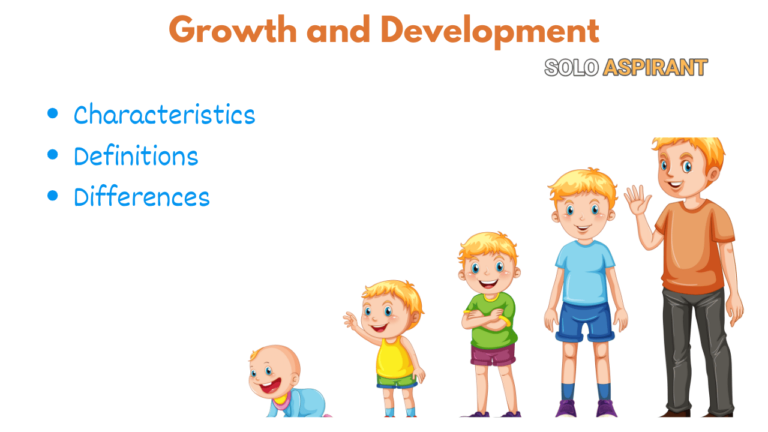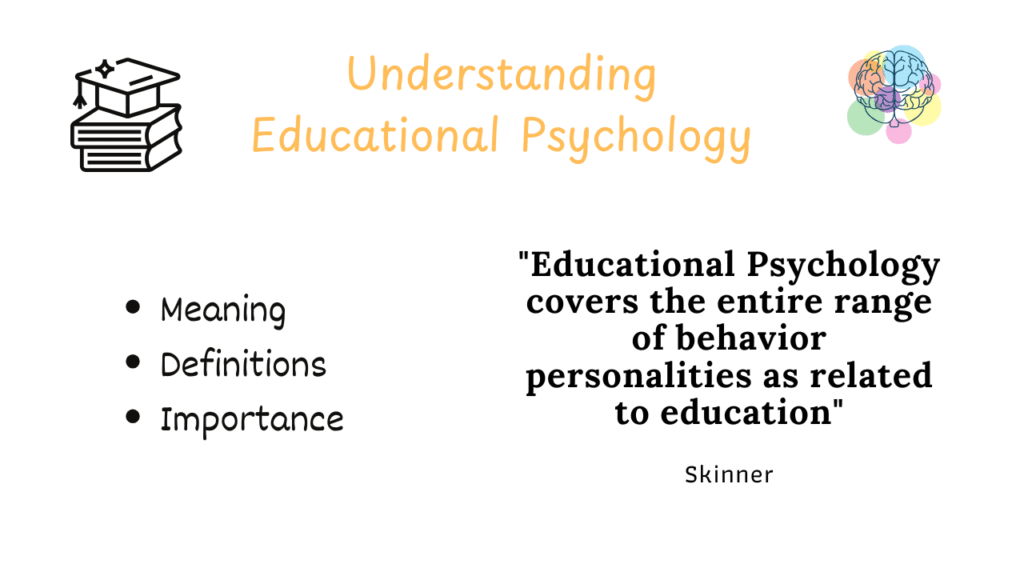Growth and Development – Characteristics, Definitions, and Differences
Growth:
- Growth: Growth refers to the physical changes an individual undergoes, such as an increase in size, weight, or height.
- It is quantitative, i.e., it can be measured.
The process can be experienced up to a certain period, up to maturation.
Definitions of Growth :
According to Hurlock
” Growth is change in size, proportion, disappearance of old features and acquisitions of new ones.”
According to Crow and Crow (1962)
“Growth refers to structural and physiological changes”
Development:
- Development is a systematic process that includes both physical and non-physical changes, including social, emotional, and cognitive changes.
- Development is a lifelong process from the womb to the tomb.
- It is both quantitative and qualitative.
- It includes every aspect of life that human beings experience throughout their journey, from birth to death.
According to Hurlock
” Development is not confined to growth alone, but it is a systematic and “consistent” change involving a progressive sequence of changes towards the goal of adulthood, resulting in new features and abilities appearing.”
Difference between Growth and Development:
Growth | Development |
Growth refers to the physical changes i.e., height, shape, and size. | Development refers to systematic changes including physical, emotional, and cognitive. |
It is quantitative | it is both quantative and qualitative |
It's happen upto maturation | It is a a lifelong process from womb to the tomb. |
It is measurable (in cm, kg) | It is predictable |
Growth is not complex as development | It is a complex process |
Growth is not affected by learning and social factors | Development is affected by learning and other social factors |
Development is a structural change | Structural as well as functional changes |
Changes can be multidimensional | Changes can be unidirectional |
Growth has no goal | Development has a goal |
Principles of Development


